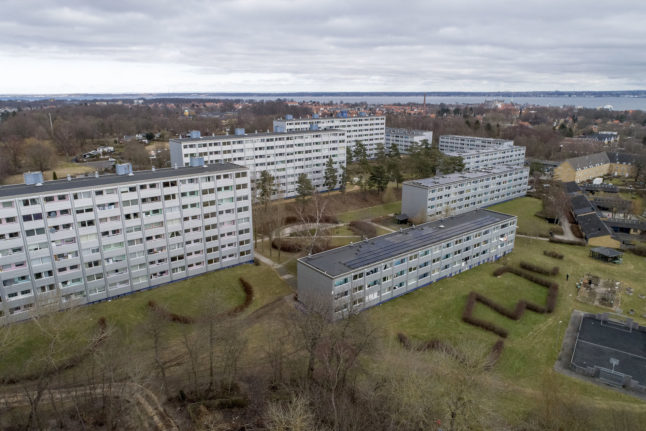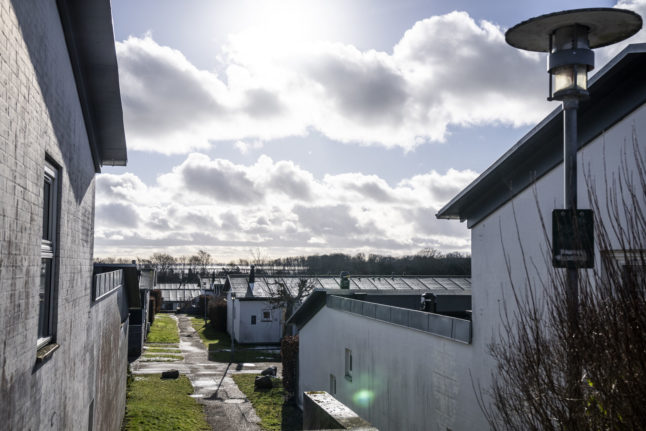The Østre Landsret high court on Monday upheld an earlier district court ruling that the residents were not the subject of discrimination when they were evicted from their housing under the terms of Denmark’s 2018 “Ghetto Law”.
Under the law, underprivileged areas with a high “non-Western” population must implement redevelopment plans if they fulfil a number of social criteria.
READ ALSO: Denmark cracks down on ‘non-Western’ neighbourhoods
The neighbourhood in which the residents lived, Nøjsomhed, was in 2018 included on the government’s list of parallel societies – then referred to as the “ghetto list”. The housing association responsible for the social housing, Boliggården, subsequently drew up a redevelopment plan in 2019.
As part of that plan, Boliggården in January 2020 advised residents in seven housing blocks that they would be required to move out, making way for extensive renovations.
The housing association’s leadership has denied that it intentionally targeted the ethnic background of its residents and said that the objective of the plan was to change the profile of residents in the area by attracting new tenants who are in full time work.
The high court ruled on cases related to seven evicted tenants amongst around 100 families who were instructed to leave Nøjsomhed.
The residents have already moved to temporary housing and two have been permanently rehoused, news wire Ritzau writes.
Monday’s verdict appears to end hopes any of the residents had of returning to their former homes.
In the case, the court was required to address whether the redevelopment plan and the selection of the specific blocks for renovation was a form of direct or indirect discrimination based on the ethnicity of the residents.
Of the three judges in the case, two found it not proven that the residents were evicted based on “an assessment of their ethnicity”. One judge did find this to be the case.
However, all three judges agreed that the term “immigrants and descendants from non-Western countries” (Danish: indvandrere og efterkommere fra ikke vestlige lande, ed.) does not refer to a group of people with the same ethnic background.
As such, the decision by the housing association was found not to be in breach of laws against racial discrimination, which address discrimination of persons of a specified “ethnic origin”.
The “Ghetto Law”, passed by the previous centre-right coalition government and continued by the current Social Democratic administration, includes several measures intended to combat what are considered to be parallel societies in underprivileged neighbourhoods.
The neighbourhoods were formerly officially termed “ghettos”, but this wording has now been scrapped.
To qualify as ‘parallel societies’, housing areas of more than 1,000 people, where more than half are of “non-Western” origin, must fulfil two of four criteria.
Areas that fulfilled the criteria are then required to take measures to combat parallel societies under the 2018 law.
The four criteria are: more than 40 percent of residents are unemployed; more than 60 percent of 39-50 year-olds do not have an upper secondary education; crime rates three times higher than the national average; residents have a gross income 55 percent lower than the regional average.
In addition to redevelopment obligations, areas on the list can be subjected to special treatment under the law, including stricter punishments for specified crimes and a requirement for small children to attend daycare.
Nøjsomhed is no longer on the government list. It was removed in December 2021 after its number of residents fell below 1,000.
The former residents have the option of applying to appeal the decision at the Danish Supreme Court (Højesteret).
The Helsingør case is the first of its kind to reach the Danish court system, but comparable protests have occurred in other underprivileged areas encompassed by the parallel societies law, including neighbourhoods in Copenhagen and Odense.
READ ALSO: Danish government reduces number of areas officially termed ‘ghetto’



 Please whitelist us to continue reading.
Please whitelist us to continue reading.
Member comments